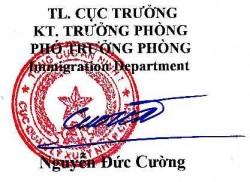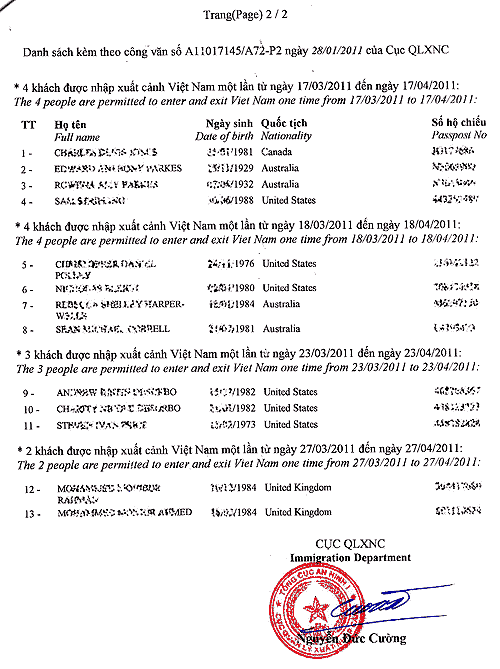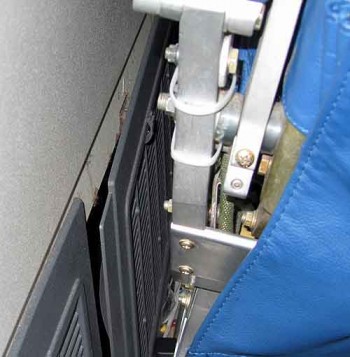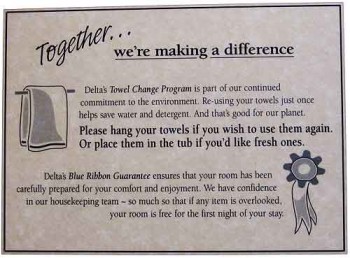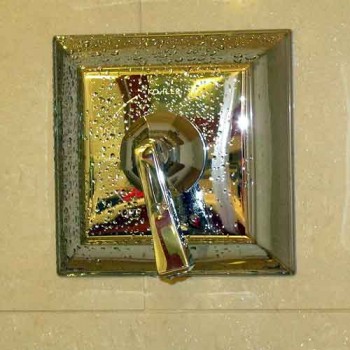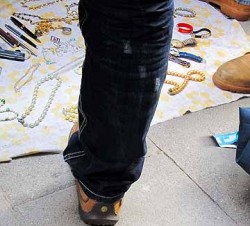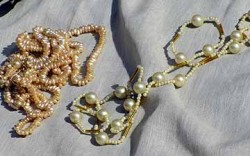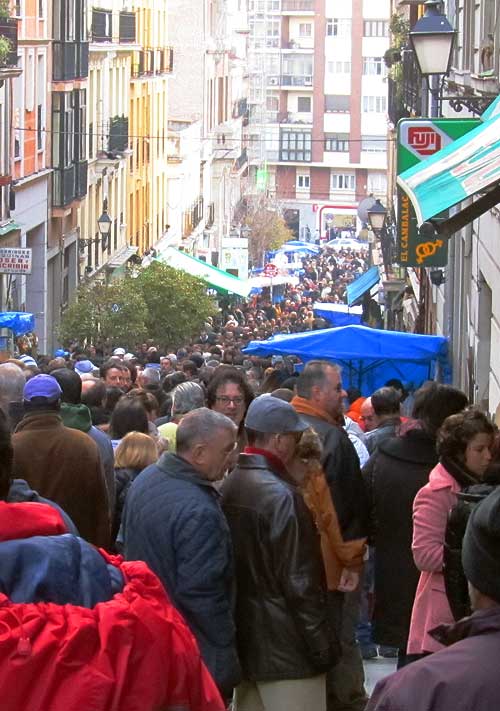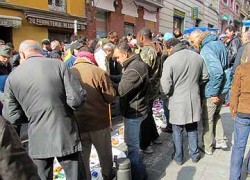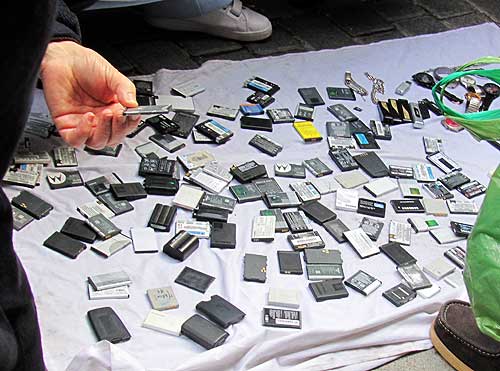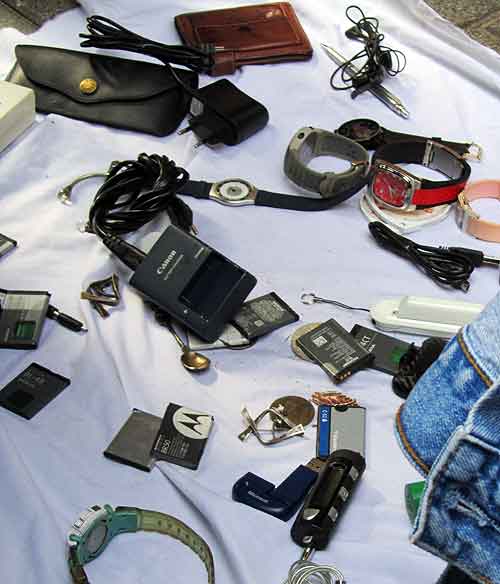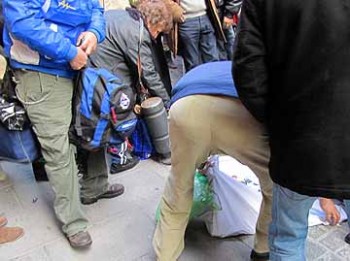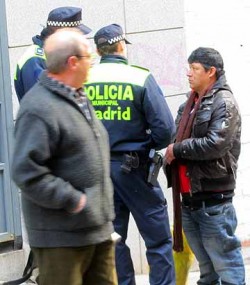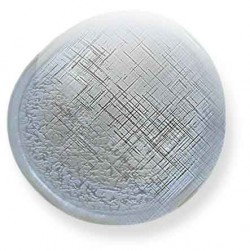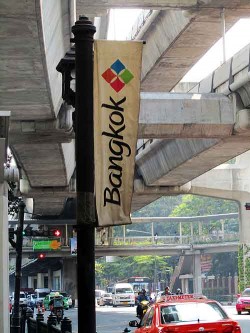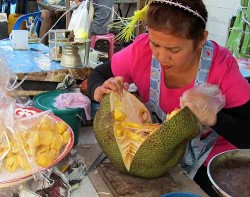
Jewelry, watches, pens, wallets… Ever wonder where all that pickpocketed stuff goes? Think Mrs. Pickpocket is decked out in your stolen pearls and Swatch, shopping with your credit card? Not likely.
Rarely, we’ve heard of thieves who return personal items, or credit cards. But how do the pickpockets and bag snatchers usually get rid of the goods?

You’ve heard of thieves’ markets…
Last week, Bob and I went scouting at El Rastro, the borderless Sunday market in Madrid, known for thick crowds and said to be crawling with pickpockets. Stalls and stands line street after street, block after block, hawking new and used goods, antiques, hardware, CDs, and everything else imaginable. We were pushed along with the crowd like a slow-moving river clogged with debris.

Thiefhunting is a warm-weather sport. We prowled halfheartedly in the frigid January morning. It was just above freezing and we, like everyone else, wore scarves and gloves and coats that pretty much hid pockets; only purses seemed to be possible targets.
From the wide main street lined with framework stalls sprouted side streets with wares spread on rickety tables and blankets on the ground. One of these streets was particularly crowded.

Progress was painfully slow down the middle of the street and along the sides people couldn’t move at all. The mobs were like misshapen circles pushed together—each circle a tight cluster facing inward, heads bent down.
Pickpocketed stuff
It was some time before we were able to get near enough to see what all the bent heads were looking at. Cloths were spread on the cobblestones, arrayed with the illicit sellers’ goods. Some specialized: only camera and phone batteries, SIM cards and memory chips; only power adapters.

Others displayed a meager mishmash of pens, thumbdrives, power adapters, pearls, glasses, earphones, battery chargers, watches, rings…

Strangely, we didn’t see any digital cameras, and very few mobile phones.
Many of the vendors flaunted an innocent decoy item—a pair of pants, a jacket—which they pretended to offer for sale. A few nervous men appeared to have only several items for sale, furtively flashing them from underneath their shirts.
For the most part, these sellers are not thieves—they’re fences—receivers of stolen goods. It also must be said that not all the goods are necessarily stolen.

As we pushed among knots and clots of shoppers, a wave of near-silent activity rolled in from somewhere above us. A spotter had given a signal. All the vendors scooped up their cloths full of booty and stuffed the bundles into backpacks or plastic bags. Merging into the crowd, they became invisible—an anonymous fragment of the whole.
With the sellers suddenly gone, the clumps of onlookers broke up and the congealed crowd became a flowing river. For a moment, holes were left where each seller’s cluster had stood.

One man was caught and questioned, backpack at his feet. Later, we saw him standing miserably, locked behind an iron gate with his police captors.
As with a school of fish, it goes without saying that one will be snagged, buying the others time. With the patrolling officers out of action, cloths were spread on the street again and the cycle continued.


